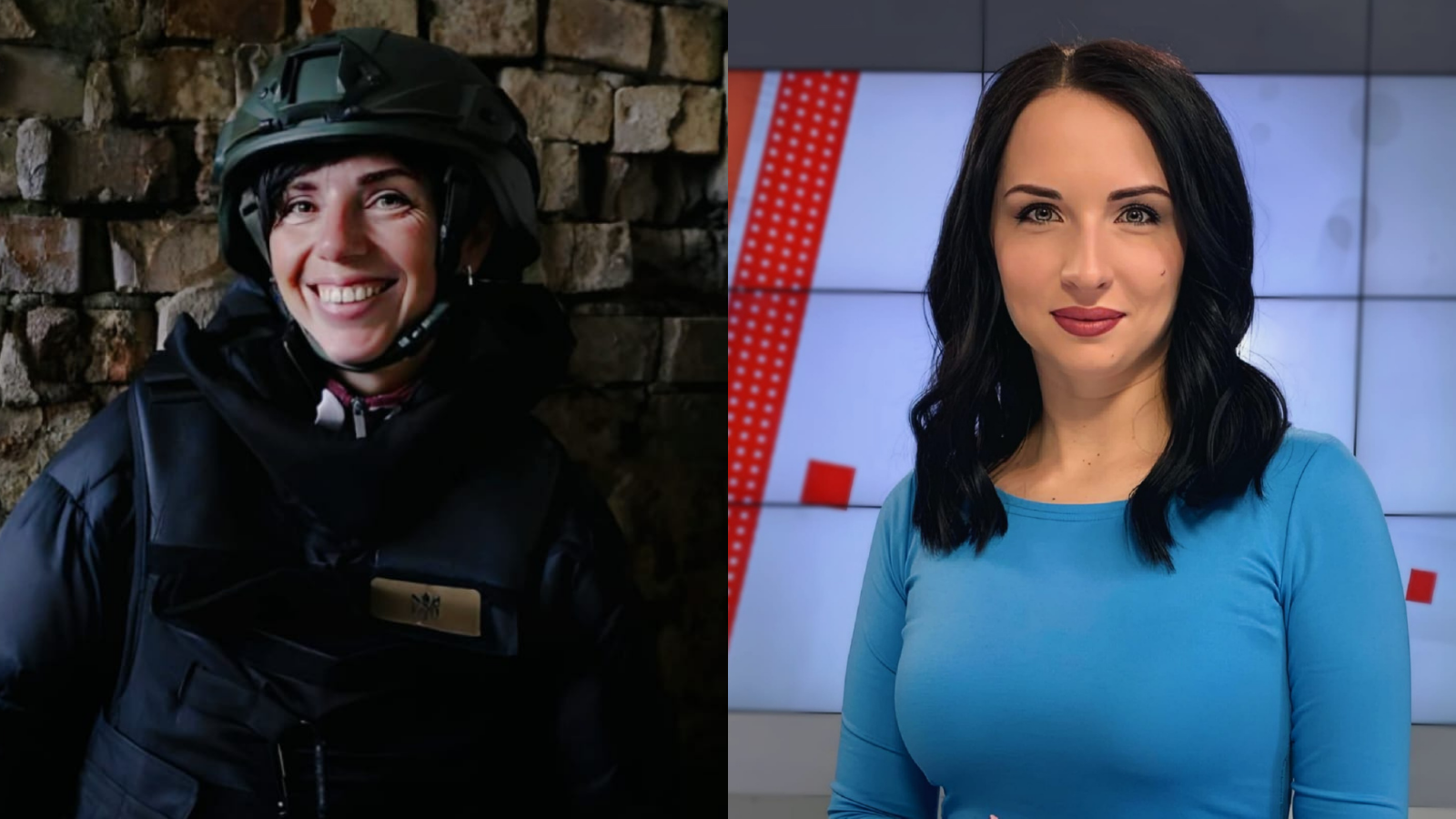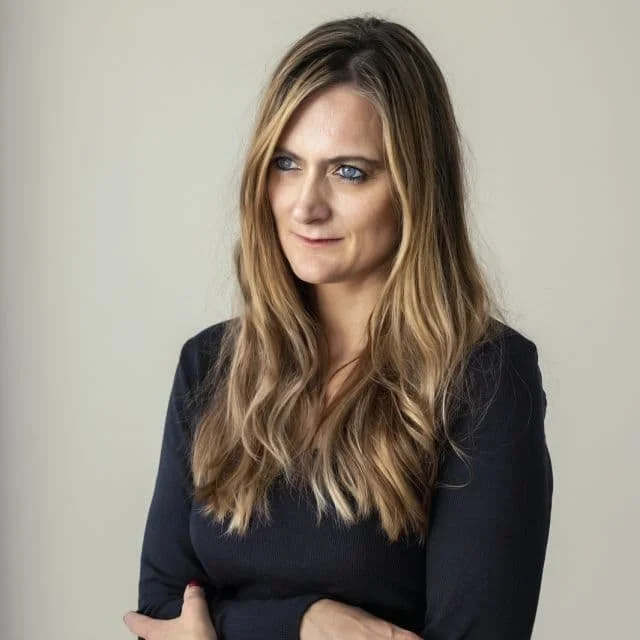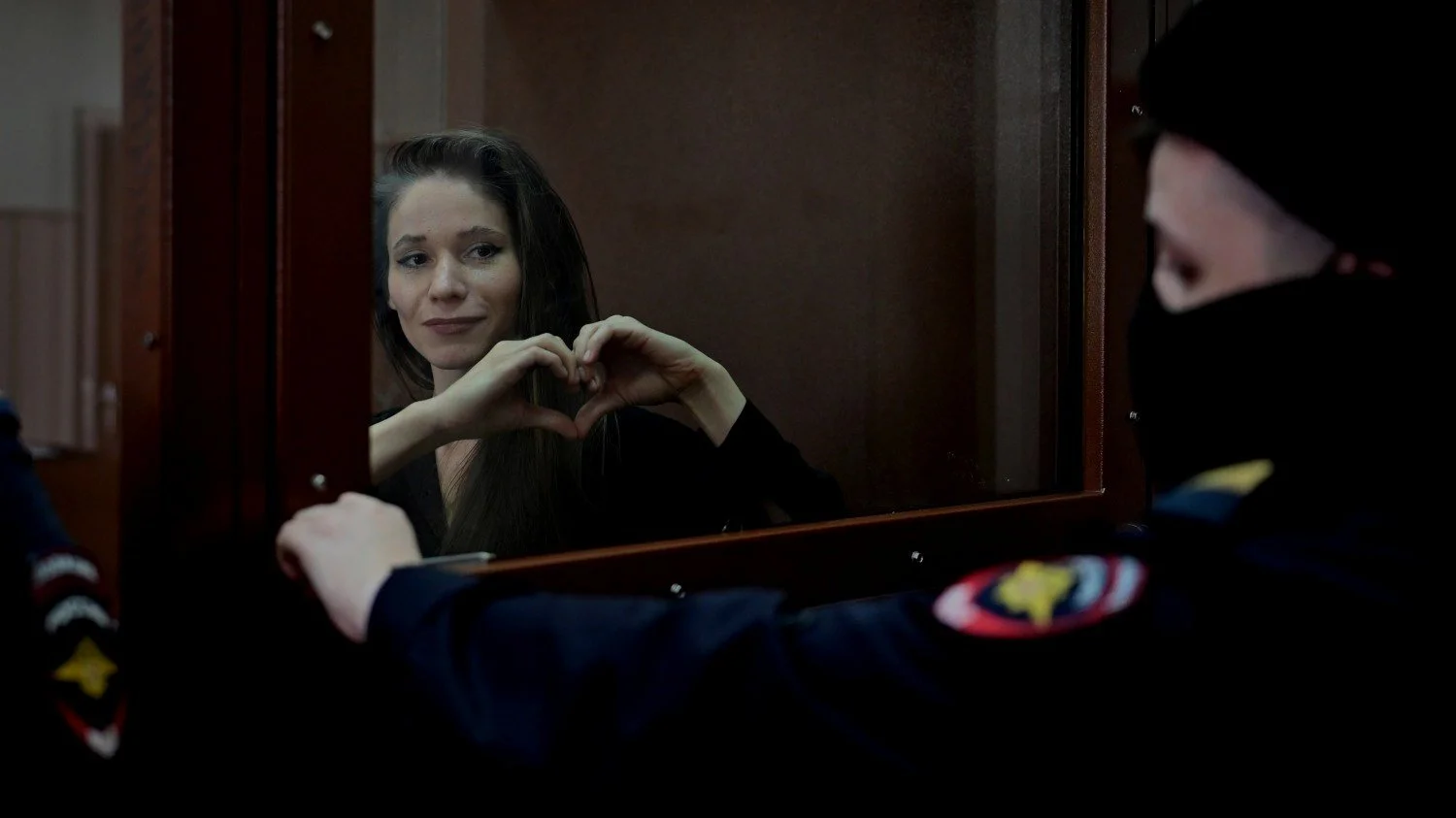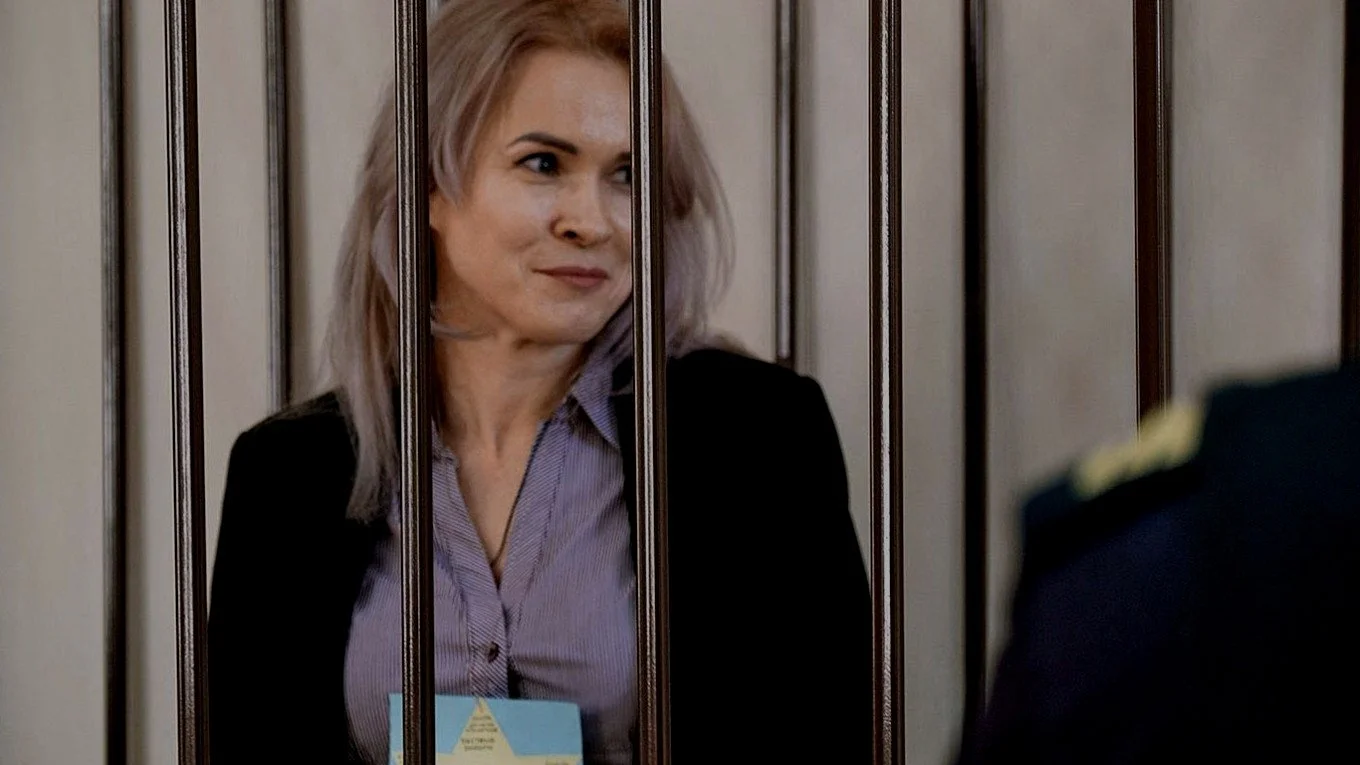Russia’s War on the Press
Russia's assault on truth and press freedom has been marked by systematic violence and repression both in Russia and beyond.
Russia’s Crimes Against Women Journalists in Ukraine
Since the full-scale invasion of Ukraine began in 2022, the Russian regime has targeted journalists on the frontlines with deliberate attacks, leading to numerous deaths and injuries among women reporters. This campaign of terror aims to suppress independent reporting and obscure the realities of the conflict.
Detentions of Journalists Covering Protests in Russia Soar
At the same time, the Russian government has intensified its crackdown on journalists covering anti-war protests and dissent at home, using detentions, physical violence, imprisonments, and legal harassment to silence opposing voices.
Transnational Repression and Russia’s Expanding Reach of Legal Harassment
As journalists flee and continue to report on Russia from abroad, the Kremlin has expanded its transnational repression tactics to target these exiled reporters. Beyond high-profile cases, many lesser-known journalists face similar attacks, including arrest warrants and terrorist listings.
Women Press Freedom has consistently documented Russia's targeting of women journalists since 2019. As the conflict has escalated, so too have Russia’s attacks on the press. This repression, once confined to its own borders, has now expanded internationally. Our data reveals that the Kremlin is a major player in transnational repression while continuing to regularly jail journalists domestically for their work. The suppression of independent media within Russia has not led to fewer press violations but rather an increase, as the Kremlin continues its assault by targeting journalists in exile and those critical of its actions abroad.
The following overview details Russia’s war on the press, highlighting attacks on journalists in Ukraine and the repression faced by Russian journalists at home and abroad. This ongoing assault on press freedom and the suppression of truth reflect a broader strategy to control information and silence dissent, posing a serious threat to democratic values and human rights.
Conflict: Russia’s Crimes Against Women Journalists in Ukraine
Russia's press violations in Ukraine have taken an especially heavy toll on women journalists, with numerous cases of killings, detentions, and injuries. These violations aim to silence independent reporting and suppress the truth about the ongoing conflict in Ukraine. Journalists continue to face grave risks as Russia's actions in Ukraine further threaten press freedom.
Women Journalists Injured on the Frontlines
Russian forces have continuously targeted journalists reporting in Ukraine, resulting in significant injuries and trauma. Since 2022, at least 18 journalists have been directly affected by missile strikes, drone attacks, and shelling.
Some recent incidents include:
On April 4, 2024, Yulia Boyko of Novosti.Live was injured in Kharkiv during a Russian drone strike.
A day later, on April 5, 2024, Olha Zvonaryova and Kira Oves were wounded in Zaporizhzhya by Russian missile strikes.
Earlier in the year, on January 10, 2024, Turkish journalist Özge Elif Kizil and Violetta-Anastasia Pedorych from France TV were injured when Russian missiles hit a hotel in Kharkiv.
On January 23, 2024, Anna Myasnikova from Nakipilo was struck by shrapnel in Kharkiv.
Yuliya Kiriyenko, a TSN journalist, sustained a mild concussion from a Russian tank offensive in Donetsk on July 19, 2023.
In June 2023, freelance photojournalist Anastasia Taylor-Lind and writer Victoria Amelina were injured during a missile strike in Kramatorsk. Amelina later succumbed to her injuries and passed away.
Other journalists such as Olga Kovalova, Vlada Liberova, and Svitlana Dolbysheva have also suffered injuries while documenting the war.
Russian Abduction and Illegal Detentions of Journalists in Occupied Territories
Since 2022, at least eleven women journalists have been abducted and detained by occupying Russian forces. Four remain in captivity, and the locations of several others are still unknown.
On October 10, 2024, it was revealed that award-winning journalist Victoria Roshchyna had died in Russian custody while being transferred to Moscow in preparation for a prisoner swap in September. While the circumstances surrounding her death remain unclear, one thing is not - the Kremlin is responsible
The abduction and illegal detention of journalists by Russian occupying forces represent a grave infringement on press freedom and international human rights standards. These actions not only silence brave reporters who risk their lives to provide vital information but also instill fear and uncertainty among their peers. The continued arbitrary detentions and harsh conditions faced by these journalists underscore a systematic attempt to suppress independent reporting and stifle dissent. We unequivocally condemn these unlawful acts and call for the immediate and unconditional release of all detained journalists. Their freedom is essential to upholding democratic values and ensuring accountability in conflict zones. The international community must stand united in demanding justice and protection for those who courageously document the truth.
Call for Investigations into War Crimes Committed by Russia in Ukraine
-
Ukraine: CFWIJ and 23 Organizations Call for an End to Russian War Crimes Against Journalists in Ukraine
Date: September 6, 2023
We, the undersigned journalists, press freedom organizations, and unions, write this statement to denounce the war crimes committed by the Russian Federation against journalists in Ukraine and to call for immediate action to hold the perpetrators accountable.
Deliberately targeting journalists, shelling their facilities, and engaging in arbitrary detentions and torture clearly violate international humanitarian law and press freedom. We urge authorities to take decisive steps to address these grave violations and provide increased support for front-line reporters.
The Coalition For Women In Journalism and 23 organizations are alarmed at the continued targeting of media workers in Russia’s invasion of Ukraine. The recent missile attack in Pokrovsk is a clear example of Russian forces deliberately targeting journalists by employing a "double tap" strategy to kill rescue workers and media personnel responding to the initial shelling. While no journalists died in this attack, it is evident that the intention was to cause mass civilian and media casualties.
The continued deliberate shelling of journalists covering the war in Ukraine constitutes a flagrant international humanitarian law violation and a war crime under the Rome Statute and the 1949 Geneva Convention on the Protection of Civilian Persons in Time of War and UN Security Council Resolution 2222 on the protection of journalists and media workers in armed conflict. Indiscriminate attacks, which fail to distinguish between military and civilian targets and affect journalists, are also prohibited under international humanitarian law. Despite these clear international standards, Russian forces continue to intentionally target journalists, aiming to intimidate the press and suppress truth.
The CFWIJ has documented the killing of at least five women journalists since the invasion began in February 2022. Russian forces have shelled and killed journalists Oksana Baulina, Oksana Haidar, Oleksandra Kuvshynova, Victoria Amelina, and Vira Hyrych. Photojournalist Anastasia Taylor-Lind and reporter Yuliya Kiriyenko were injured in missile attacks. Yevhenia Kytayiva and Anna Kudryavtseva were also targeted by Russian missiles but managed to get out unscathed.
According to CPJ, at least 17 journalists have been killed on the frontlines in Ukraine, including Brent Renaud, who was executed with a shot to the head.
It is not only through direct attacks on journalists' lives that Russian forces seek to intimidate the press. They also employ detentions, enforced disappearances, and criminal prosecution as a tactic to silence media workers and their relatives. Journalists such as Iryna Levchenko, Iryna Danylovych, Iryna Dubchenko, Lutfiye Zudiyeva, and Viktoria Roshchina have been wrongfully detained. The father of Ukrainian journalist Svitlana Zalizetska was detained in retaliation for her work.
Protection of the press during war is paramount to ensure transparent and truthful coverage of events. The absence of such eradicates the ability of public and relevant international organizations to hold those in power accountable.
We welcome the charges ICC’s chief prosecutor Karim Khan issued against Vladimir Putin and Maria Lvova-Belova for the abduction of Ukrainian children. We urge the ICC Prosecutor to take a similar approach towards the situation of journalists in Ukraine and investigate and charge those responsible for committing war crimes against journalists.
We call on:
ICC, Chief Prosecutor Karim Khan, to:
Charge Russian officials who have committed war crimes against journalists
Send out an arrest warrant for those charged
ICC:
Ensure a fair trial for the perpetrators
Ensure meaningful participation and support for the victims
International Centre for the Prosecution of the Crime of Aggression against Ukraine:
In coordination with the Joint Investigative Team and foreign partners to investigate all crimes against journalists reporting on the conflict
Collect, document, and analyze evidence in the Core International Crimes Evidence Database (CICED)
Ensure that documented evidence of crimes against journalists is available for any future special tribunal established to indict and prosecute those responsible.
ECHR:
Examine and decide on applications that relate to violations of the Convention allegedly committed prior to Russia’s withdrawal from the ECHR. Under Article 58 of the Convention, ECHR can examine alleged violations of the Convention committed by Russia up to that date.
OHCHR, Volker Türk, UN High Commissioner for Human Rights, to:
Collaborate with the ICC, sharing information and coordinating efforts.
Advocate for joint action among international bodies to hold perpetrators accountable.
OSCE, Chairman-in-Office, Bujar Osmani, to:
Engage in diplomatic efforts, issuing statements and conducting negotiations to address the targeting of journalists and media workers.
Raise concerns through bilateral and multilateral platforms to ensure accountability.
Council of Europe:
Continue to monitor compliance with human rights obligations, particularly regarding press freedom and the protection of journalists.
Signed
Coalition For Women In Journalism (CFWIJ)
Women In Journalism Institute, Canada
Alliance for Journalists’ Freedom
Article 19 Europe
Canadian Journalists for Free Expression (CJFE)
Canadian Journalism Forum on Violence and Trauma
Danish PEN
Danish Union of Journalists
Defend Democracy
European Centre for Press and Media Freedom (ECPMF)
European Federation of Journalists (EFJ)
Fair Vote UK
International Press Institute (IPI)
Journalists for Human Rights (JHR)
Justice for Journalists Foundation
Rory Peck Trust
‘NEVER AGAIN’ Association
OBC Transeuropa (OBCT)
Open Britain
Overseas Press Club of America
South East Europe Media Organisation (SEEMO)
The Daphne Caruana Galizia Foundation
The European Federation of Public Service Unions (EPSU)
Women Photograph
In September 2023, Women Press Freedom issued a statement condemning the Russian Federation’s war crimes against journalists in Ukraine and calling for the international community to act. We presented evidence of the deliberate targeting, shelling, arbitrary detentions, and torture of journalists, which violate international humanitarian law, including the Rome Statute and Geneva Conventions. We urge immediate actions, such as charges by the International Criminal Court (ICC) against Russian officials responsible for these crimes, and urge international bodies like the ECHR, OHCHR, and OSCE to investigate, document, and prosecute these violations.
State Repression Deepens: Detentions of Journalists Covering Protests in Russia Soar
Since Russia's full-scale invasion of Ukraine in February 2022, the Russian government has significantly escalated its detention of independent journalists, especially those covering anti-war protests or events linked to the late opposition leader Alexei Navalny. According to Women Press Freedom’s data, women journalists in Russia have been systematically targeted, facing detention, physical violence, and harassment while reporting. Since 2019, we have documented 65 cases of women journalists being detained, with the highest number—21 detentions—occurring in 2022.
Though the number of journalists detained in 2023 showed a temporary decline, Women Press Freedom’s records indicate a renewed rise in detentions in 2024. These surges in journalist arrests align with major protests across Russia, pointing to a direct link between civil dissent and state repression of media workers.
Detentions at Anti-War Demonstrations
Between February and September 2022, 20 women journalists were detained and harassed while covering anti-war demonstrations. Notable cases include Nataliya Vasilyeva (Telegraph), Nika Samusik (Sota.Vision), and Viktoria Avdeeva (Simbirsk.City), who experienced violent detentions by Russian security forces. Their only "offense" was documenting the widespread protests against Russia’s invasion of Ukraine.
Detentions escalated again in September as Moscow announced mobilization of conscripts triggering nationwide protests. At least 18 journalists were detained including five women journalists.
The arrest of Marina Ovsyannikova (Channel One) for her live on-air protest against the war further highlights the extreme measures state authorities are using to silence voices of dissent — even those working within state-run media outlets.
Detentions Related to Navalny Memorials
Following Alexei Navalny’s death in February 2024, a new wave of journalist detentions occurred targeting those covering memorials honoring the politician. Journalists still reporting from within Russia are continually at risk, facing the possibility of years in prison if detained and charged. While many journalists detained at recent protests have been released after short periods with minor fines, the threat of more severe charges looms large, as seen in the case of Antonina Favorskaya.
Antonina Favorskaya
On March 27, 2024, journalist Antonina Favorskaya was awaiting release after serving a 10-day administrative sentence for placing flowers at a Navalny memorial. Before her release, officers raided her home and informed her she was under investigation. Favorskaya now faces charges of “participating in an extremist organization” due to her reporting on Navalny's Anti-Corruption Foundation (FBK), which was declared extremist by Russian authorities in 2021. Favorskaya’s deep coverage of Navalny, including his court hearings and the last video of him before his death, has made her a prime target for further state repression. She is currently being held in a temporary detention center in Moscow.
The detention of these journalists reflects a broader pattern of state-sponsored censorship, which seeks to suppress dissenting voices and control the narrative surrounding the war.
From Moscow to Exile: The Expanding Reach of Russia’s Legal Harassment Against Journalists
Women Press Freedom’s data on legal harassment of women journalists by Russia demonstrates a systematic campaign by Russian authorities to silence critical voices. 32% of all violations perpetrated by Russia against journalists involved legal persecution. The legal environment in Russia has been weaponized to suppress press freedom, turning the judiciary into a tool of repression.
Russian authorities use various legal mechanisms to target journalists.
Journalists are accused of spreading misinformation, particularly regarding sensitive military operations.
Accusations are made against those allegedly justifying or supporting terrorism.
This controversial law, used to label individuals or organizations as foreign agents, imposes severe reporting requirements and penalties.
Military Censorship Laws
Following Russia's full-scale invasion of Ukraine in 2022, military censorship laws were introduced, severely restricting independent reporting on the war. These laws criminalize any "unreliable information" about the Russian military, with severe penalties for those found guilty of discrediting the armed forces.
The laws have led to over 4,000 prosecutions and have driven many media outlets and journalists out of Russia. This legislation has stifled dissent and independent reporting, reinforcing the Kremlin's control over information.
On February 15, 2024, journalist Maria Ponomarenko was sentenced to six years in prison for allegedly spreading false information about the Russian military. Detained since April 2022, Ponomarenko faces charges related to her reporting on a Russian airstrike in Mariupol, Ukraine. She has faced mistreatment at the hands of officers while in prison and repeatedly been denied medical care. Her case exemplifies the harsh repression faced by journalists in Russia.
Foreign Agents Law
Enacted in 2012 and significantly expanded in 2022, Russia's “foreign agents” law targets individuals and organizations deemed to be influenced or funded by foreign entities.
This legislation has led to a sharp rise in administrative cases targeting journalists. The law's requirements — such as extensive reporting and disclaimers — are used to harass and fine journalists, further complicating their work.
Transnational Repression: Harassment of Exiled Journalists
Following escalating legal repression, independent media outlets such as Novaya Gazeta and TV Rain were forced into exile due to the increasing danger faced by their journalists.
This mass exodus of independent journalists, who had already endured years of Kremlin-led repression, has severely damaged Russia's media landscape.
The Kremlin appeared satisfied with the large-scale departure of journalists and activists, as its clampdown on free speech achieved its intended effect.
However, the persecution does not end there. Our documentation shows that as journalists continue to report on Russia from abroad, the Kremlin has expanded its transnational repression tactics to target these exiled reporters.
Since 2023, Women Press Freedom has documented 48 legal harassment violations targeting women journalists outside of Russia.
Russia's legal efforts to stifle these voices include (click on the image for a case example):
At first glance, the Kremlin’s tactic of pursuing journalists in exile might seem futile. However, it is far from ineffective. Journalists facing criminal charges, unjust warrants, and convictions while living abroad can encounter significant problems with travel and residency.
For instance, Russian-American journalist Masha Gessen experienced difficulties applying for a visa to speak at an event in Australia.
Despite being a well-known writer for The New York Times and The New Yorker, Gessen faced criminal checks from both Russia and the US due to a bogus eight-year conviction issued by Russia in July 2024. Although the Australian government ultimately issued the visa after the issue was publicized, the incident underscores the real consequences of such persecution.
Beyond high-profile cases, many lesser-known journalists also face similar challenges, including arrest warrants and terrorist listings.
Women Press Freedom is concerned that these tactics will continue to cause visa, residency, and travel issues, thereby enabling further repression. Countries that recognize Russia’s attack on truth and its journalists must be vigilant and avoid contributing to the persecution of those who have been targeted for their honest reporting and critical views on Putin and his policies.





















